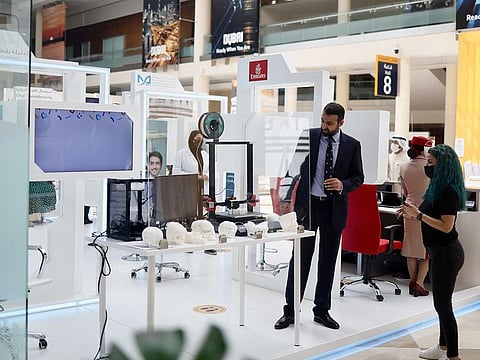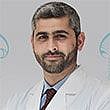Al Jalila Children’s Speciality Hospital in Dubai treats over 400 rare genetic cases in a year
Success rate of more than 50% at Al Jalila Hospital’s Genomic centre

Also In This Package
Dubai: It has been a year since the first dedicated Genomic centre at Al Jalila Children’s Speciality Hospital was launched.
Thanks to active gene therapy, the centre has since been able to treat over 400 rare genetic diseases in children with a success rate of over 50 per cent. This is the first of its kind Genomic centre for paediatrics, accredited by the Centre of American Pathologists (CAP) for Genomic diagnostic and counselling.
Announcing this success, at Arab Health 2021, Dr. Ahmad Abou Tayoun, Director of Al Jalila Children’s Genomics Centre and Associate Professor of Genetics at Mohammed bin Rashid University (MBRU) told Gulf News, “This is a high success rate and we are happy with the progress.”
Dr Tayoun spoke to Gulf News at length, explaining the seminal work in Genomics being carried out by the centre.
Why does UAE need a paediatric Genomic Centre?
Dr Tayoun explained the process of complex gene therapies at work at the Genomic Centre. “Owing to consanguineous marriages, there are several rare genetic diseases in children that involve multiple organs and systems. We usually label them as genetic syndromes. When a disease occurs in one child per 2,000 healthy births, it is labelled rare. But then there maybe 5,000 children with the condition, so there is need to sequence the genome of the patient and analyse the origin of the disease. There is a 7 per cent chance of a congenital/rare disease occurring in a new born. This means 7 out of every 100 births we have a chance of a rare disease.”
How does genome sequencing help?

Spinal Muscular Atrophy (SMA)
One of the glowing examples of success at the Genomic Centre has been targeted therapy for SMA. SMA is a debilitating motor neuron disorder that progressively causes atrophy of muscles. In many cases, it is fatal in small children.
The Genomic Centre has been able to detect the missing SM1 gene in children and with targeted gene therapy inject it into the children. In the last one year, SMA gene therapy has helped save lives and mange the condition SMA in many infants detected with this condition, Dr Tayoun said.
COVID-19 gene sequencing
Dr Tayoun said the centre was collaborating with the Dubai Health Authority (DHA) and was currently studying gene sequencing for SARS-COV 2 virus, studying the RNA in positive samples to detect different variants — UK, South African, Indian, Brazilian etc. He explained, “We are keeping an eye for new mutations and submit the data to DHA and other relevant authorities.”
Mohammad Bin Rashid University (MBRU) collaboration
The Genomic Centre is collaborating with MBR University for Health Sciences at the Dubai Health Care City (DHCC) for genome sequencing in adult genetic diseases. “So far we have genetic data to know that approximately 5,000 genes cause diseases. We are researching to discover new disease -causing genes in collaboration with MBRU Centre for Genomic Studies,” added Dr Tayoun.
Genomic Council
On June 15, His Highness Shaikh Mohammed bin Rashid Al Maktoum, Vice-President and Prime Minister of UAE and Ruler of Dubai, announced the formation of the Genomic Council. Dr Tayoun said, “Our Genomic centre will be part of this Genomic council that will oversee the working of the ongoing Emirates Genomic Project (EGP).
Building a Genomic ecosystem
“In the private sector, we are collaborating with pharmaceutical company Novartis on the development of the SMA gene therapy. This therapy has had great success in saving lives of infants diagnosed with congenital Spinal Muscular Dystrophy. So our Genomic Centre is participating and collaborating in various research and treatment programmes on a government and private sector level. We have a strong AI [artificial intelligence] driven infrastructure in place for analysis, extraction, diagnosis. We have all the skill sets required to evolve in this field. We are building an eco system in Genomic sequencing and gene therapy and are ready to help at every level,” Dr Tayoun said.
Sign up for the Daily Briefing
Get the latest news and updates straight to your inbox









